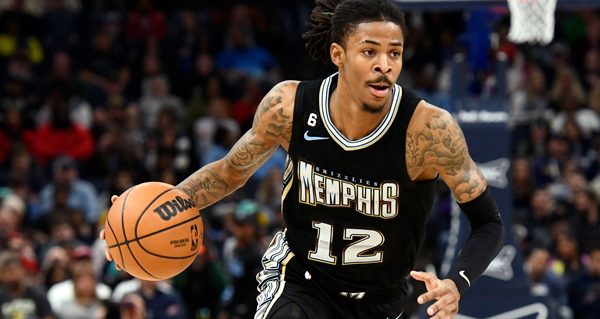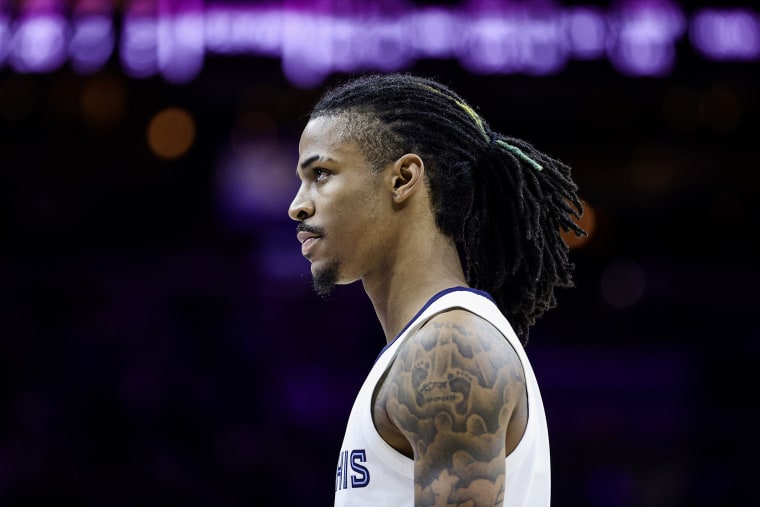By: Zachary Draves
Ja Morant is at it again.
Last Saturday, he was caught on Instagram live brandishing a gun for a second time while riding in a car with his friend who recorded the incident. Afterwards, he was suspended by the Memphis Grizzlies from all team activities, which comes off the heels of him being suspended for the same offense just a few months ago.

(Courtesy: Brandon Dill/Associated Press)
The video of him flashing a gun outside a Denver nightclub in March sparked an outpouring of concern for his mental well-being. The incident resulted in being suspended by the league for eight games and entering into a brief stint in therapy.
On Tuesday, he issued a statement via ESPN’s Adrian Wojnarowski “I know I’ve disappointed a lot of people who have supported me. This is a journey and I recognize there is more work to do. My words may not mean much right now, but I take full accountability for my actions. I’m committed to continuing to work on myself.”

(Courtesy: Brandon Dill/Associated Press)
Amidst anticipation of a possible longer suspension, NBA Commissioner Adam Silver said in an interview with ESPN’s Malika Andrews “we’re in the process of investigating it and will figure out exactly what happened to the best we can then.”
Now that he has been caught again in real time for the same behavior, we are back to asking the same questions. What is going on with him? What company is he surrounding himself with? Does he really mean what he says about taking responsibility for his actions? What should the league do?
But as we once again go through this revolving door, we must ask ourselves a question.
Are we holding ourselves to the same standard of trust and accountability on the issue of guns that we expect Morant to live up to?
Granted Morant is a public figure and by default a role model, so therefore he is in a unique position to set a positive example that is not afford to most. However, we must make it clear that while his conduct is dangerously problematic and he needs to be held accountable, it exists in the context of a much larger societal plague, which is America’s toxic fetishizing of guns that we are unwilling to confront.

(Courtesy: Tim Nwachukwu / Getty Images)
This country has a preoccupation with guns. We see them everywhere in all aspects of our social and cultural life. In movies, video games, political campaign ads, Christmas cards featuring gun-obsessed politicians and their families, and AR-15 pins on the lapels of those same politicians, even as those are the weapons of choice in most of the recent mass shootings.
We often associate guns with self-defense, heroism, and ruggedness. Some use the second amendment as a protective shield to legitimize those generic sensibilities.
But while there can and should be respect given to responsible gun owners who emphasis genuine feelings of self-defense or who participate in regulated sporting events, there must be a condemnation of a culture that normalizes the reckless proliferation of guns that produce horrific results.
Mass shootings have occurred with such regularity in recent years and time after time politicians engage in a never-ending cycle of vicarious violence. In other words, a shooting happens, we offer empty thoughts and prayers, promise that things will change, create an atmosphere where any mention of guns being the problem is cast aside or even silenced, then another shooting happens and we are back at the beginning.
If we can’t reckon with our pathologies about guns and the harm they consciously inflict, then frankly who are we to judge Morant when, as far as we know, didn’t use the gun on the video to commit a crime.
Ja Morant is clearly in need of additional help. But as he takes a look in the mirror, we must do the same.